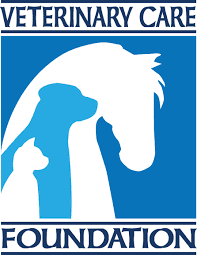
Hyperthyroidism is a very common disease that affects older cats causing a variety of symptoms including hyperactivity, weight loss, excessive appetite, hypertension, and heart disease. It is caused by a tumor of the thyroid glands causing the release of excessive amounts of thyroid hormone. Therapy has included medication that blocks the manufacture of thyroid hormone, surgical excision of the thyroid, and radioactive iodine therapy.
Iodine-131 is a radioactive isotope which is very effective in treating hyperthyroidism in cats non-surgically. A single injection of I-131 will eliminate the disease by destroying the tumor in the thyroid gland. When the I-131 isotope is injected into the patient, the iodine is selectively taken up by the thyroid gland. The radiation given off by the isotope locally irradiates the tumor and destroys it. Other organs in the body are minimally affected and the patient does not have to endure the stress and pain of surgery. I-131 is considered the gold standard for therapy of hyperthyroidism in cats.
Cats are admitted on Mondays and Tuesdays for I-131 therapy. Baseline blood work, chest x-rays, and blood pressure evaluation is needed and can be provided by the referring veterinarian during the week prior to I-131 therapy. If a cardiac assessment is needed, this can be done the day of admission at IndyVet, or may be performed by the referring veterinarian the week before I-131 therapy. Methimazole therapy should be stopped at least one week prior to admission. All data previously collected by the referring veterinarian should be submitted to IndyVet so that it can be reviewed at the time of treatment.
Once the patient is admitted, they are further examined to assure that they are good candidates for I-131 therapy. Those that are fully qualified are treated on the day of admission, and are maintained in a specially designed radiation containment housing ward in the hospital. The patient’s radiation levels are monitored closely until they can be safely released, usually in the afternoon or evening of the third day following admission.
Although cats are discharged within the safety guidelines developed by the Nuclear Regulatory Commission for radiation exposure, owners are instructed on the safe handling of the cat’s litter and waste during the following two weeks to minimize any possible radiation exposure to the pet owner.
A re-check appointment 7 to 10 days after treatment is recommended. It is also recommended that the kidney, liver, and thyroid values be re-tested at 30 days post treatment. The re-check appointments may be scheduled at the office of the referring veterinarian, or at IndyVet.
We have treated nearly 600 cats over the past eight years and remain pleased to offer this state of the art treatment for feline hyperthyroidism. Please contact us with any questions you may have about this treatment at 317-782-4484 or Medicine@IndyVet.com.



